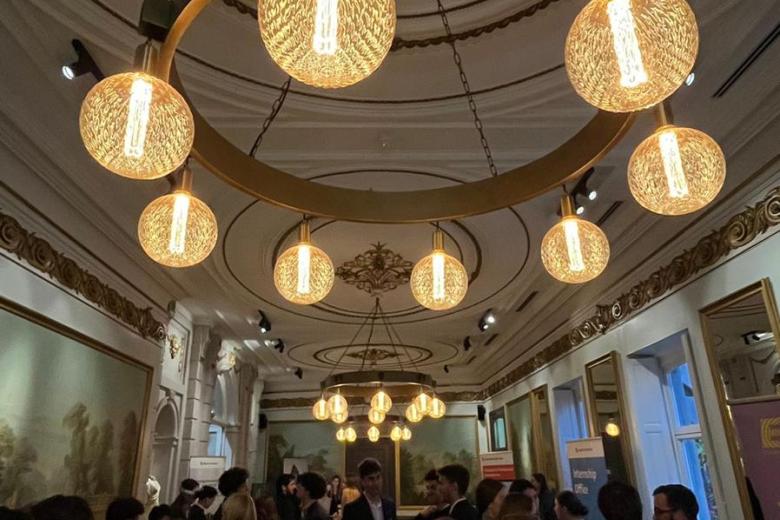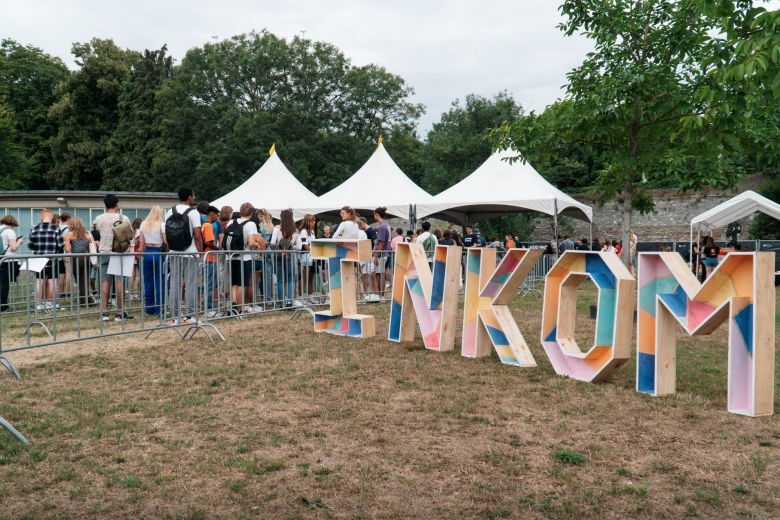How to study and when to take a break
Were you absolutely cruising through your exams? Were you well prepared with plenty time to spare? Then Anique de Bruin’s work won’t change your life. But for everyone else, the Professor of Self-regulation in Higher Education has useful insights and tools. Together with a refugee scholar financed by a Hestia grant, she is currently researching how and when to take study breaks. The frequency will surprise you.
By her own admission a “rather unmotivated and pretty average high school student”, Anique de Bruin suddenly flourished with Problem-Based Learning (PBL), graduated from UM’s psychology programme with honours and never really looked back. “PBL fit me really well, because it encouraged discussion, speaking up and exchanging ideas. I was always intrigued how the outcome could be so different in a different learning environment.”
It turns out there is more to studying than good work ethic and a set of garishly coloured marker pens. De Bruin researches how students monitor and regulate their learning. “You need to consider what needs doing, how and when. It’s a complex act of self-regulation – quite similar to healthy eating and exercising.” This ability to self-regulate affects a student’s wellbeing and is a good predictor of later professional success and life satisfaction.
Yet, according to research, the majority of students have difficulty steering and monitoring their learning. “Often people start too late or are surprised by feedback. Sometimes, they also do too much because they don’t know how to study effectively. That’s a problem given the limited time and energy they have. Interventions will not only make it more likely students get their degree but also increase their wellbeing now and in the long run.”
Study Smart
Together with her collaborators, de Bruin has developed the learning strategy training programme Study Smart. “It helps students understand whether their strategies are effective – as well as teaching them strategies that work and implementing those strategies.” With effective strategies in their arsenal, students’ levels of confidence and emotional self-regulation likely also increase. “Work on your strategies – you don’t have to change your lifestyle entirely; just take small steps. It’s doable.”
Setting feasible, clear and specific goals is crucial – and difficult. “Often we set unachievable goals – it feels motivating but it’s self-defeating.” Study Smart extols the virtues of spreading learning over time, self-testing, and self-explanation, while exposing highlighting, rereading and summarising as time-consuming and relatively ineffective. It provides materials for teachers as well as students. It’s not just an online tool kit but also available as a training programme via mentors and study counsellors.
Thriving on freedom is an end, not a means
A conundrum for UM in particular is the balance between independence and guidance in learning. “We mustn’t confuse means and ends. The end is to be able to completely independently set your own learning goals and find a way to reach them – but then that can’t be the means. Providing students with freedom alone, i.e. a fully self-regulated learning environment, sells them short.”
It all depends on the appropriate support, or ‘scaffolding’. Research suggests that, for novices, it’s much more effective to study examples of solved problems instead of solving problems themselves. “We tend to want to throw students in at the deep end, but it turns out that they need very specific support on how to set goals, choose and execute strategies, and reflect on their learning. That needs to be modelled and there needs to be feedback.”
People thrown in at the deep end might not drown, but they won’t learn to swim very well either – they need quality coaching for that. “Left to their own devices some few people might thrive but many, many more who would have the potential will learn much less than they could have.” De Bruin points out that self-regulation is a skill you can learn like any other and that students shouldn’t be afraid to look for help. “Everybody thinks the person next to them is so much smarter and has it all figured out, but it just seems that way.”
Hestia: not losing hope or potential
If you’ve read this far, you almost deserve a break – presumably… “There’s very little research on students taking breaks. Recovering when learning is very important and we know little about how to best do that.” In keeping with her main research line, de Bruin will look at the question from a self-regulation perspective. And she won’t do so on her own. The NWO (Dutch Research Council) has established the Hestia grant, which allows researchers who had to flee their homeland due to war or other immediate threats to join ongoing Dutch research projects.
As a recipient of the NWO’s prestigious VIDI grant, de Bruin was able to peruse a list of vetted refugee researchers. “We had a video call and felt a click from the very start – personally and in terms of research interests.” The process is uncomplicated – but still impactful on a personal level. “This combination of complete despair combined with the hope and resilience to board a boat not knowing if you’ll survive or ever see your family again… It made me realise even more that my kids and I have such privileged lives. People tend to see everything they’ve achieved as due to individual abilities and determination, but the context matters immensely.”
“The researcher I’m working with had to flee his country and leave his family, three small children, and an academic career behind to save his life. It took him a year to get to the Netherlands and he had to build a new life from scratch, writing research proposals in a series of refugee centres.” For safety reasons the researcher will remain unnamed but he has recently been reunited with his family and can’t wait to get to work.
This is a 5-minute read – focus!
The research project is based on a first study conducted in 2020 during the pandemic around the Pomodoro technique, which was recently published . The question was whether and how students benefited from a fixed schedule of learning and breaks. There were three groups: 24 minutes studying and 6-minute breaks, 12 minutes studying and 3-minute breaks, as well as a self-regulated group who could determine their own rhythm. 24 minutes is the general Pomodoro protocol but “research on our attentional system typically shows that we can maintain focused attention for roughly 12 minutes.” Additionally, it might have a motivational effect since 12 minutes seems eminently doable.
The self-regulated group studied for longer stretches, took longer breaks, yet didn’t seem to achieve more. They were, however, more fatigued, more distracted and less focused and motivated. “Pomodoro schedules helped the students stay on task and be more effective. Accordingly, they were in a better mood afterwards.” A possible explanation is that deciding if and when to take breaks is mentally taxing. “Offloading that burden to a schedule preserves cognitive capacity. Going on for longer than is optimal and constantly assessing whether it’s a good time to take or end a break, the self-regulated group would waste a lot more energy.”
The project will try to replicate and expand on the research and look into whether taking a break with real or virtual peers makes a difference. “Many people study in groups, so we wanted to look into the effects of that. There’s a fascinating YouTube phenomenon of ‘study with me’ videos, that has taken off during the pandemic. People post six-hour videos of themselves studying.” One of the hypotheses is that mirroring someone with high self-regulation skills is not only motivating but also offloads the decision when to take breaks. Not being with an actual person to potentially distract you might be an additional benefit. The study will try to find out if and how effective the practice is.
Thank you for your attention. You may now continue to peruse social media for up to 3 minutes.
By Florian Raith
Also read
-
Maastricht Business Days 2024: Building bridges between talent and opportunity.
The Maastricht Business Days (MBD) have been a hallmark of the School of Business and Economics (SBE) since their inception in 1996, standing out as the most prestigious student recruitment event. Organized by SCOPE, the faculty’s dynamic study association, the MBDs connect over 600 students annually...
-
INKOM 2024
From Monday 19 until Thursday 22 August students will get to know each other and the city of Maastricht. This week is about getting to know Maastricht, the city where you will meet new people and you will have to learn to find your way around again. Not just at the faculty, the library and the sports...
-
Living and working at PITground in Sittard
Living in Sittard and studying in Maastricht, Eindhoven or even Tilburg or Leiden. A few years ago, this was hard to imagine, but nowadays it is increasingly common. Sometimes out of necessity, but often also as a conscious choice. The rise of more creative places to live outside the traditional...